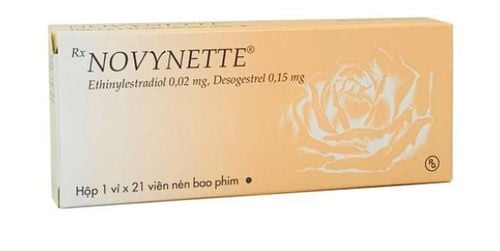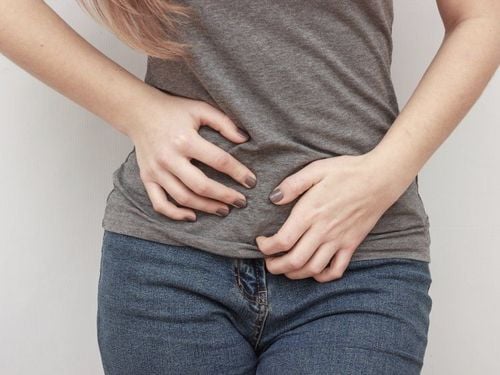Menopause signs occur when women enter perimenopause. Some common signs of menopause include irregular periods, hot flashes, sweating, and decreased sex drive.
1. Signs of menopause
Menopause usually begins at age 51 in a natural cycle, but it can also occur before age 40, which is called premature menopause. This depends on genetic factors.
The first sign of menopause is irregular menstruation. Menstruation will usually stop completely within 4 years of detecting irregular menstruation. In addition, some other symptoms can also occur warning of approaching menopause, including:
- Mood swings
- Reduced sex drive
- Hot flashes
- Sweating
- Rapid heartbeat
- Headaches
- Vaginal dryness and pain
- Increased pain during sex
- Difficulty sleeping
- Some symptoms can last for years and affect the quality of life of many women.
2. What are the stages of menopause?
The process of ending menstruation occurs slowly through three stages:
Premenopause: Premenopause begins with irregular menstruation, with intervals between cycles. Most women enter this stage at age 47. Although there are symptoms such as hot flashes and sweating, you can still get pregnant.
Menopause: Menopause is characterized by the complete cessation of menstruation for a year. At this stage, a woman's body often experiences symptoms of hot flashes, vaginal dryness, and difficulty sleeping.
Postmenopause: Once menstruation has stopped for more than a year, you enter postmenopause. Your menstruation will stop completely for the rest of your life. You should note that after more than a year without menstruation due to menopause, if there is vaginal bleeding or any other symptoms, see a doctor immediately.

3. Tests to diagnose menopause
The way to know if your period is coming to an end is to track your menstrual cycle for 12 months. If your menstrual cycle is irregular, you are in perimenopause. Menopause occurs when you have not had a period for 1 year.
A blood test to measure the level of the hormone FSH (follicle stimulating hormone) can also be done to measure the level of ovarian activity. When estrogen levels decrease, you may experience symptoms such as hot flashes, vaginal dryness, and pain during sex.
Women who are approaching menopause have tissue in and around the vagina that thins due to the decrease in estrogen. The only way to check the thickness of the vagina is to have a Pap smear, but this is rarely done.
When vaginal tissue thins, you may experience urinary incontinence, pain during sex, decreased sexual desire, and vaginal itching.
4. How to reduce the symptoms of menopause?
There are many ways to reduce the symptoms of perimenopause and menopause. Some of the measures below that you can use for reference include:
Lifestyle changes: A healthy diet and regular exercise program will help control the symptoms of menopause. This is a great time to eliminate any unhealthy habits such as smoking or drinking too much alcohol. To help reduce hot flashes, you should dress lightly and in layers. Avoid stimulants such as caffeine and spicy foods. In addition, sexual activity during this period can help protect the vaginal lining.
Use medication to reduce hot flashes: Combined hormone therapy (HT) or hormone replacement therapy (HRT) with estrogen and progesterone can be used to reduce hot flashes, night sweats and prevent osteoporosis. For people who have had a hysterectomy, you can only be treated with estrogen. However, hormone therapy is only used in limited numbers. People with breast cancer, cervical cancer, blood clots, liver disease, stroke, pregnant women, and unexplained vaginal bleeding should not use hormone therapy. Other medications such as antidepressants, anticonvulsants, and blood pressure medications can also help reduce hot flashes and mood swings.
Use medications to reduce vaginal dryness and difficulty sleeping: Prescription estrogens, topical non-estrogen lubricants to treat vaginal dryness and pain during sex. For insomnia, you can use over-the-counter or prescription sleep aids.
Acupuncture, meditation, and relaxation are other good ways to reduce stress during menopause. Many women also try natural and herbal remedies. You should talk to your doctor before taking these measures.

5. What are other causes of irregular periods?
Irregular periods can be caused by many other factors besides the end of your period when you enter perimenopause, including:
Pregnancy or breastfeeding: A missed period can be an early sign of pregnancy, while breastfeeding will often delay the return of your period after pregnancy.
Eating disorders, excessive weight loss, or excessive exercise: These are all bad habits that can disrupt your period.
Polycystic ovary syndrome (PCOS): People with PCOS may have irregular periods as well as enlarged ovaries that contain small fluid-filled cysts, called cysts, that can be seen on ultrasound.
Premature ovarian failure: Premature ovarian failure is a condition in which normal ovarian function is lost before age 40. Women with premature ovarian failure, also known as primary ovarian failure, may have irregular periods for many years.
Pelvic inflammatory disease (PID): Infection of the reproductive organs can cause irregular menstrual bleeding.
Uterine fibroids: Uterine fibroids are non-cancerous tumors that develop in the uterus. They can cause heavy and prolonged periods.
Signs of an impending end of menstruation are signs that you have entered menopause. Depending on the stage, there are different signs. Therefore, if you have unusual signs during this stage, you should go to a medical facility for examination and treatment.
To arrange an appointment, please call HOTLINE or make your reservation directly HERE. You may also download the MyVinmec app to schedule appointments faster and manage your reservations more conveniently.
References: webmd.com, healthline.com, mayoclinic.org













